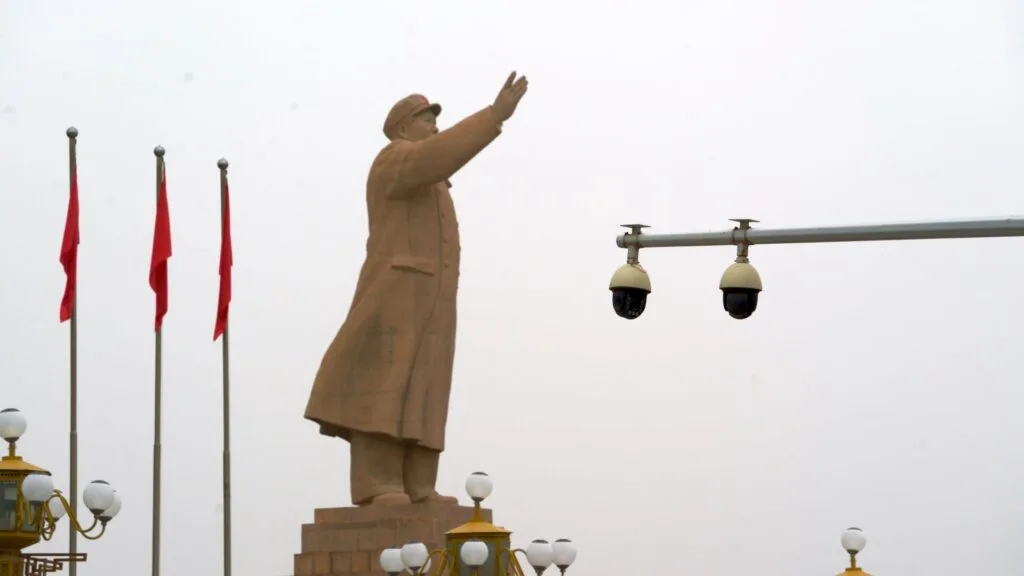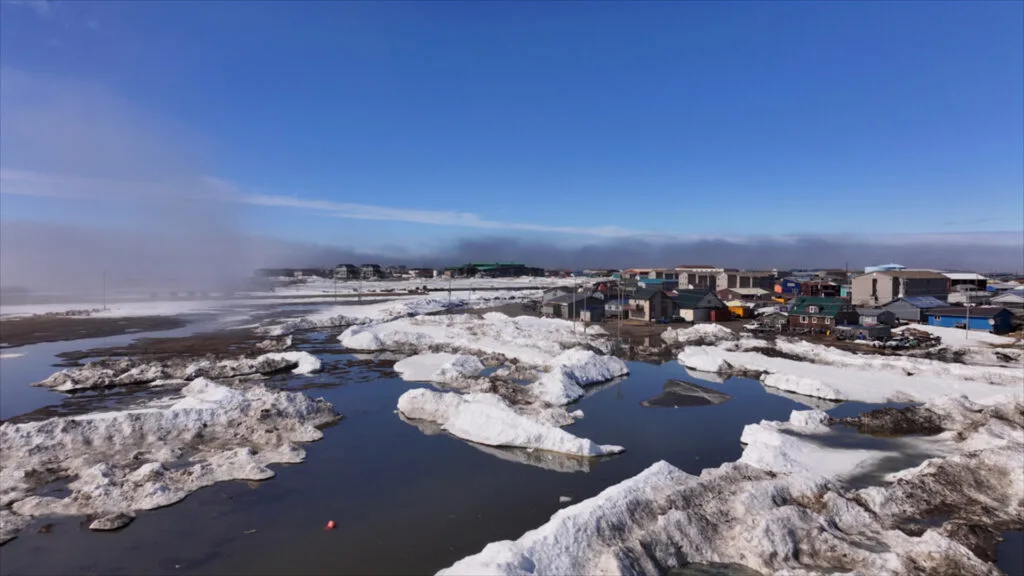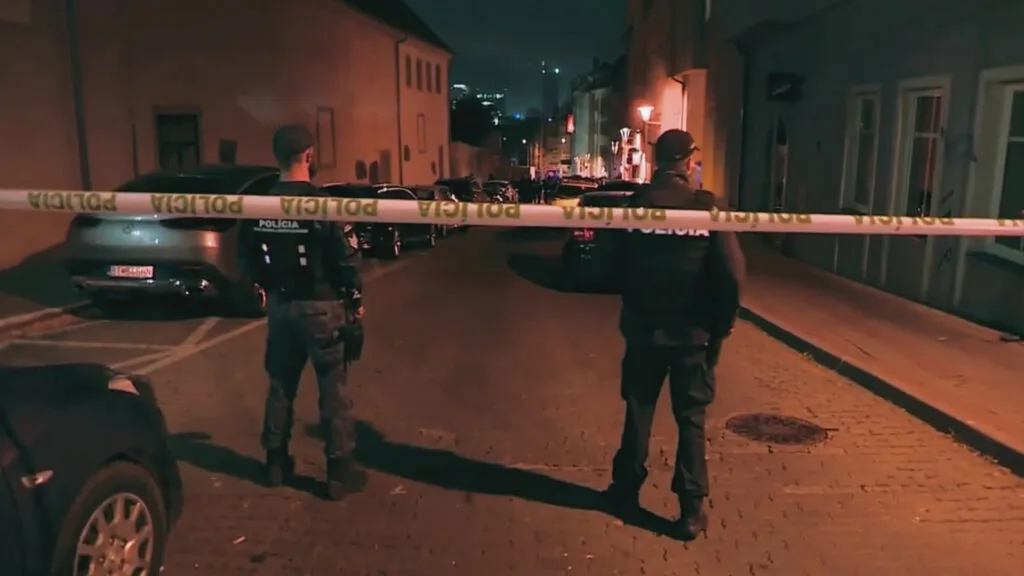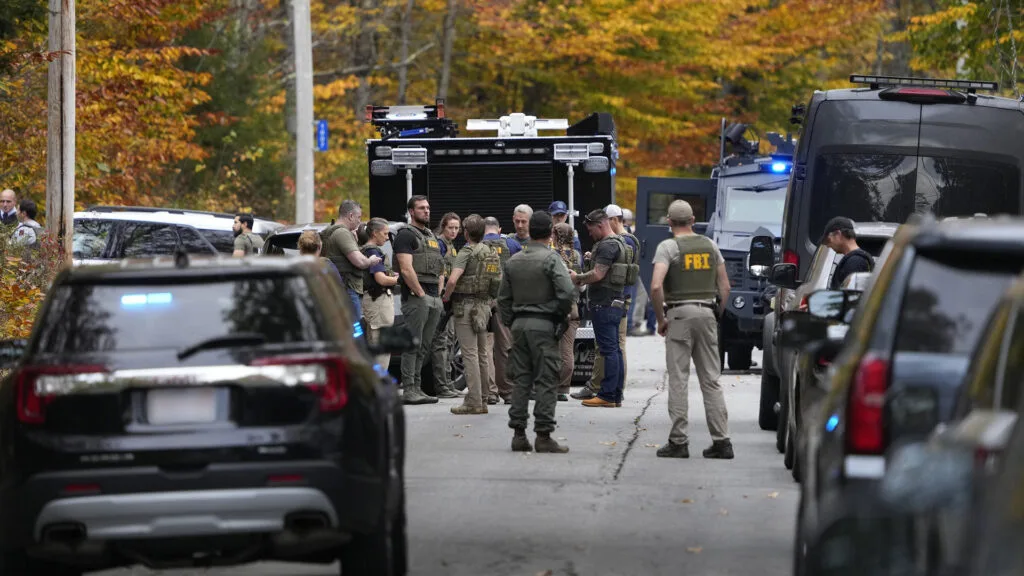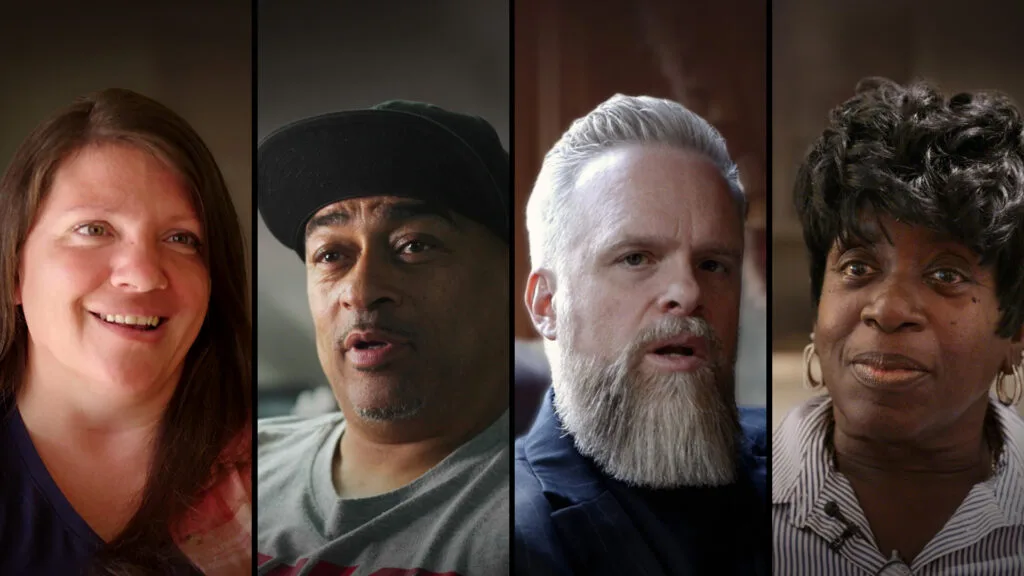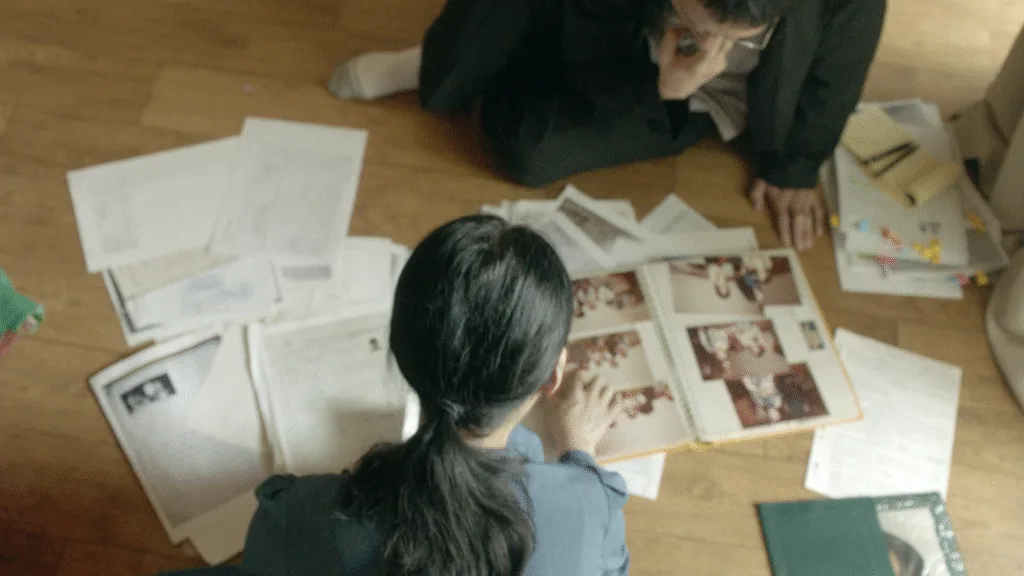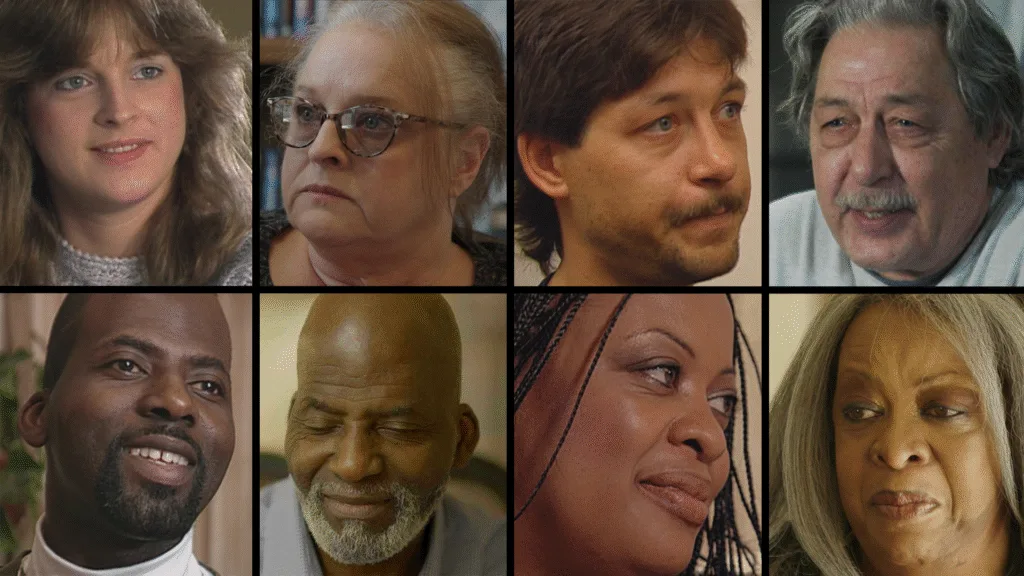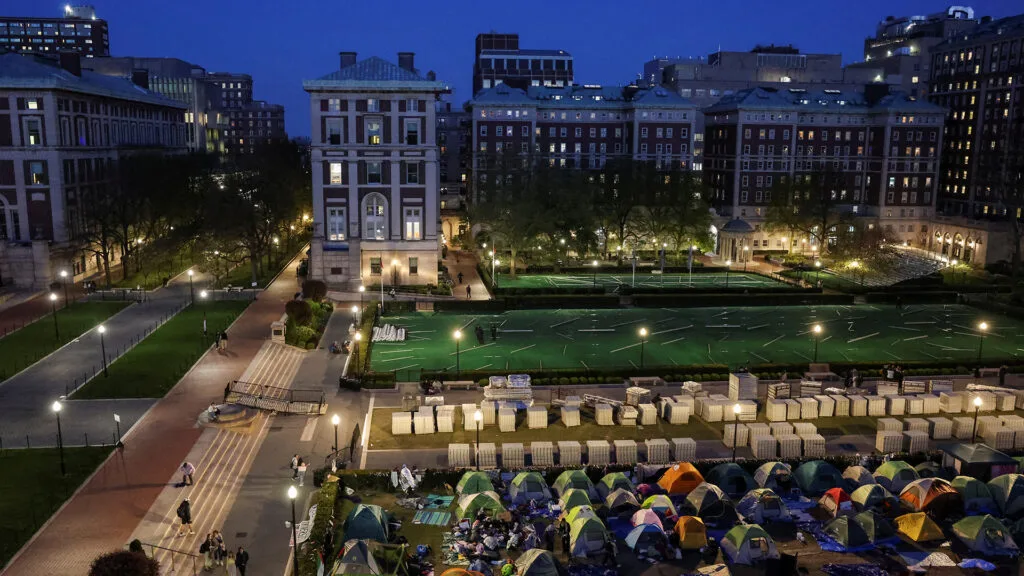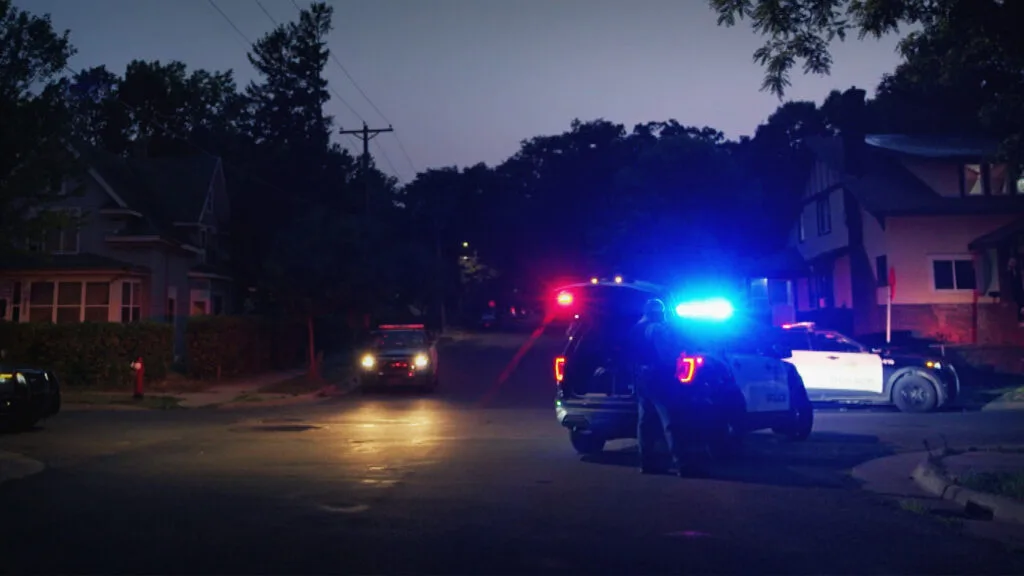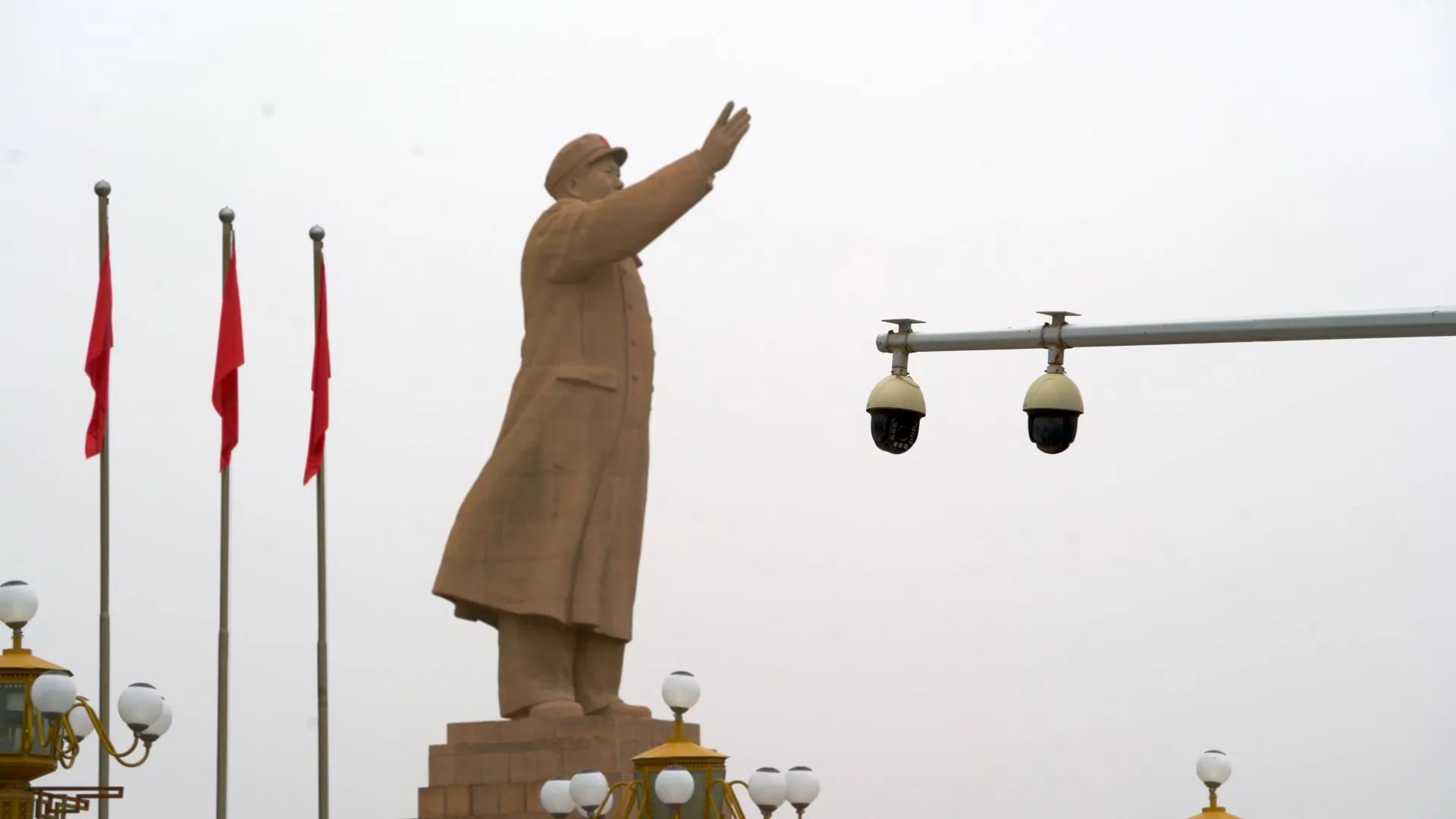A Minutes-Long Call After Two and a Half Years of Silence: Update from a Uyghur Family Featured in ‘China Undercover’
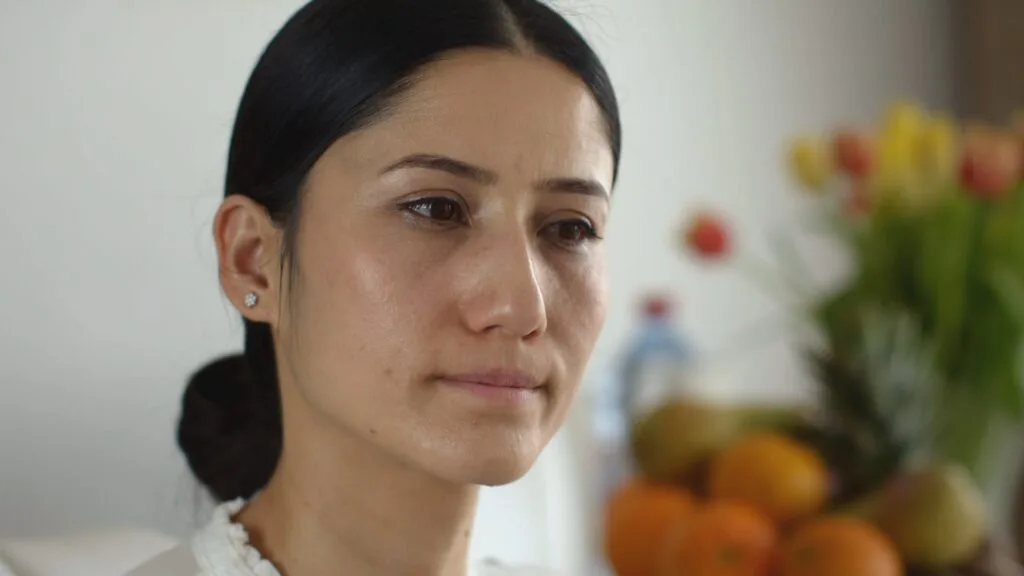
November 10, 2020
Share
In April, FRONTLINE released the documentary China Undercover, an investigation into China’s mass imprisonment of Uyghurs and other Muslim minorities in the region of Xinjiang and the Communist regime’s use of sophisticated surveillance technology to monitor these communities.
Several families whose loved ones went missing in Xinjiang shared their stories in the documentary. Since the original broadcast, FRONTLINE has received updates involving two sisters featured.
In May, a month after the documentary’s U.S. premiere, Gulzire, a Uyghur refugee living in Munich, Germany, received a phone call from her sister — the first contact Gulzire had had with her family in Xinjiang in two and a half years.
Guzire’s sister, Gulgine, had decided to return to Xinjiang in December 2017 from Malaysia, after the sisters’ parents stopped responding to messages from their daughters.
Over the last three years, the Chinese government has detained an estimated 2 million people from Xinjiang — a region where Uyghurs and other Muslims are the majority — in camps it describes as “vocational and training centers.” People have been detained for reasons such as downloading the mobile app WhatsApp, contacting relatives abroad, having a beard or having too many children, according to leaked documents.
In response to questions about the camps, a spokesman for China’s government told FRONTLINE, “Requirements on respecting and safeguarding human rights are strictly followed; the dignity of the trainees are fully respected; and insults and cruelties of any form are strictly prohibited.”
Read more: How the U.S. Has Reacted to China’s Treatment of Uyghurs
Survivors of those camps, however, describe living behind bars and mesh wire, with constant camera surveillance and brutal treatment, including being hit with electric prods.
For all of those reasons, Gulzire, in Munich, was worried about her sister returning to Xinjiang. So they made a plan. “We agreed when [Gulgine] returned home that she would change her profile picture [on social media] every week,” Gulzire said. “This would let me know that she was safe and well.”
Before Gulgine got on the plane to Xinjiang, Gulzire received a chilling voice message from her sister: “When I go home, if I disappear, don’t tell anyone or say anything. There are people listening everywhere. Everyone has someone following them.”
In January 2018, when her sister’s profile picture changed to show a dark, half-shaded room, Gulzire grew even more concerned and started searching for her sister. She found out from a friend that her sister was “studying” — a code word for being held in one of Xinjiang’s camps.
In December 2019, the Chinese government announced that everyone in the camps had been released. But at the time the documentary first aired, in April 2020, Gulzire remained skeptical that Gulgine was free. “If she’d been released and gained some freedom, she’d have found a way to contact me. Neither her profile nor her wall picture have changed,” she said.
So Gulzire was surprised when she received a phone call from an unknown number in May 2020. “I didn’t hear any sound when I picked up for the first time, so I hung up,” she said.
“Then I received another call, and this time, I heard Gulgine speaking on the other side of the telephone. I was really surprised. I asked if it was her and she said, ‘Yes, sister, it is me.’”
“My sister said, ‘I’m here, I’m safe,’ and she put the video on,” Gulzire told FRONTLINE. “Then we did a six-minute video call. Then I saw my sister, my mother and my father. I didn’t see my brother. I asked about my brother, and my mother said he has a job. My sister said she is a teacher, and yeah, that she was good and healthy. But I couldn’t ask where she has been for over two years.”
Before the call ended, Gulzire says her mother told Gulzire not to join any protests.
“I realized someone must be monitoring them, so that’s why their attitude went from very excited to very serious all of a sudden,” Gulzire said.
A few days after the call, Chinese state media released a video on Twitter that showed Gulgine teaching English at a training center. The tweet referenced the FRONTLINE documentary and said Gulgine was “living a happy life with her family since she returned to China.”
In the video, Gulgine talks about her teaching job, helping her parents with chores and her plans to go shopping.
Tweet from @iSince that minutes-long phone call in May, Gulzire has not heard from her sister or any other family member again. She said she is happy to have spoken with her family, but she could sense they are still living in fear and are under constant surveillance.
Sadyrzhan, a Uyghur who lives in Kazakhstan, also shared the story of his wife’s disappearance in China Undercover. The last time he heard from her through a contact, he said she conveyed this message: “Don’t ask questions. We can’t give answers. Sadyrzhan mustn’t look for me or contact our family. Don’t contact anyone in China.”
Since that message, he has heard nothing more from her.
For the full story, stream China Undercover any time in the PBS Video App, on YouTube, in FRONTLINE’s online collection of documentaries or below.
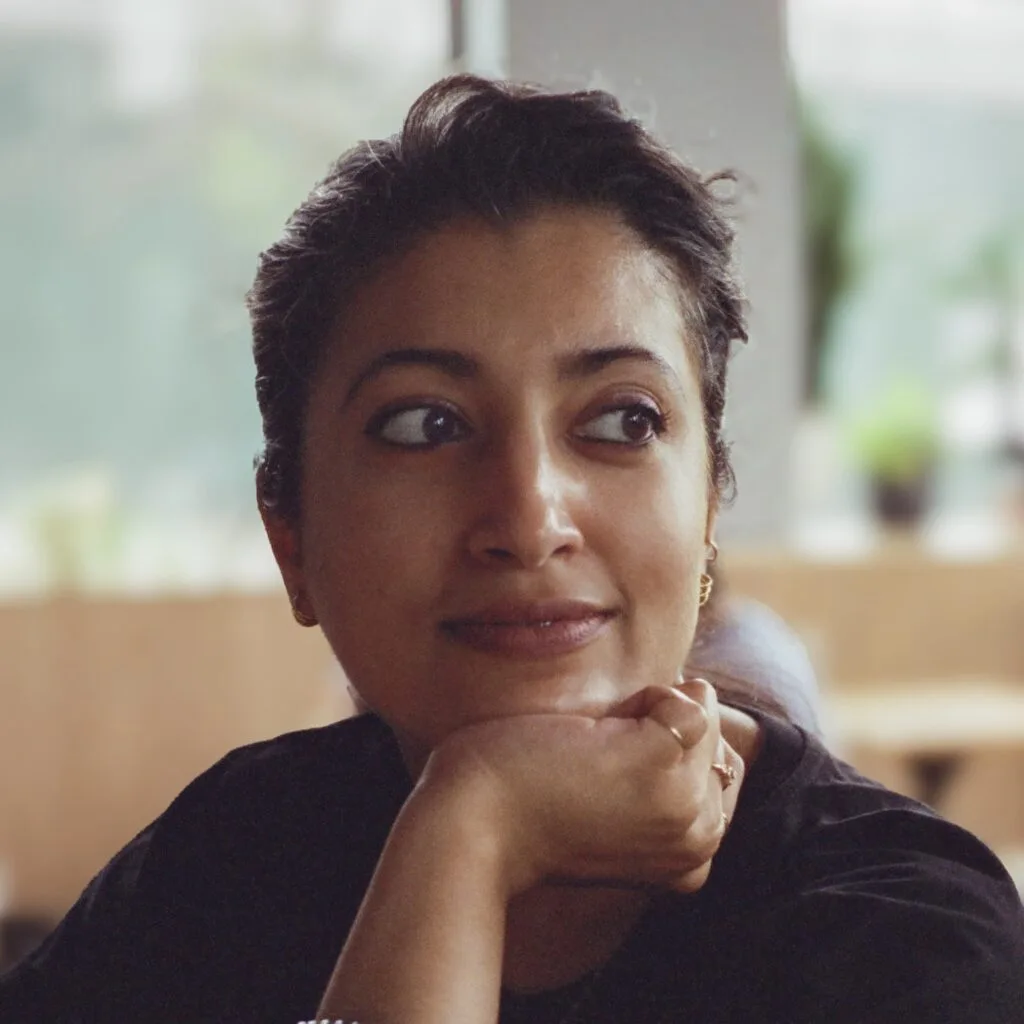
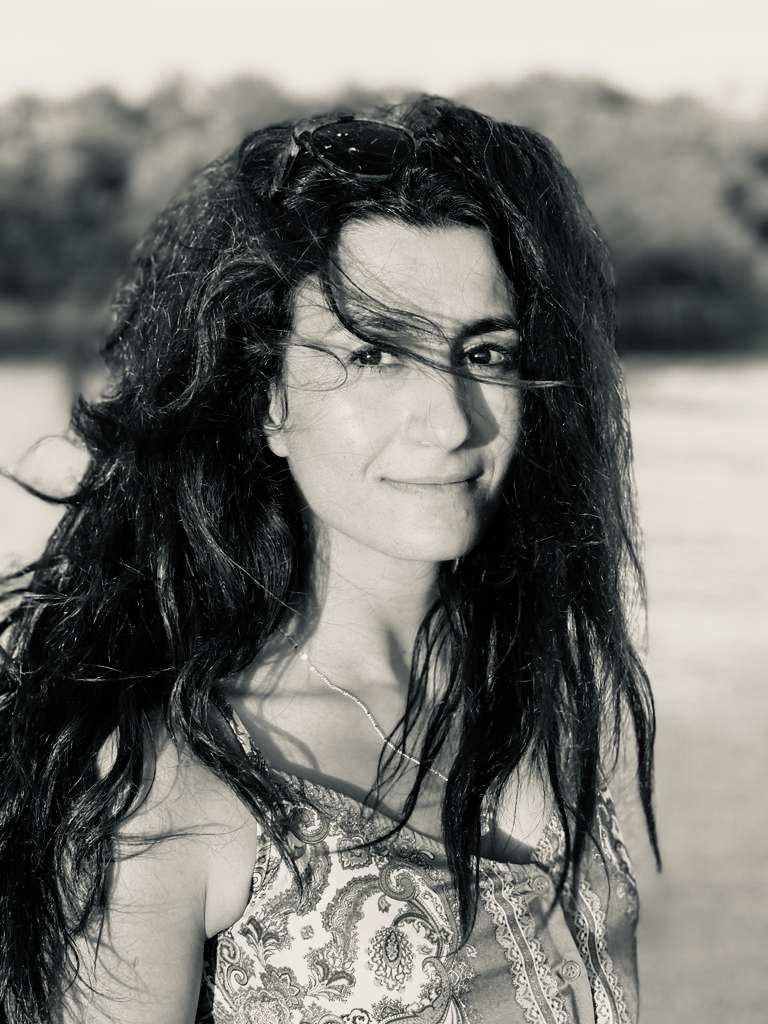
Related Documentaries
Latest Documentaries
Related Stories
Related Stories
Explore
Policies
Teacher Center
Funding for FRONTLINE is provided through the support of PBS viewers and by the Corporation for Public Broadcasting, with major support from Ford Foundation. Additional funding is provided the Abrams Foundation, Park Foundation, John D. and Catherine T. MacArthur Foundation, Heising-Simons Foundation, and the FRONTLINE Trust, with major support from Jon and Jo Ann Hagler on behalf of the Jon L. Hagler Foundation, and additional support from Koo and Patricia Yuen. FRONTLINE is a registered trademark of WGBH Educational Foundation. Web Site Copyright ©1995-2025 WGBH Educational Foundation. PBS is a 501(c)(3) not-for-profit organization.
